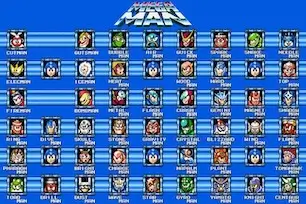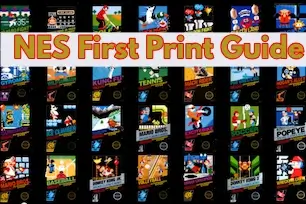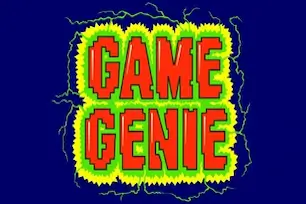Retro games vs modern games; the difference in difficulty is one of the most striking contrasts in gaming history. They challenge our skills and push us to our limits.
Recently, my playthroughs of "The Legend of Zelda: Breath of the Wild" (2017) and "Demon's Souls" (2020 remake) got me thinking about the inherent difficulty of classic games. Have you ever wondered why old games are so hard?
Reflecting on my time with "Demon's Souls" (2009 original), I realized it clarified my retro gaming experiences and how they shaped my approach to challenges.
Key Takeaways
- Retro games challenged players with limited saves, no tutorials, and steep learning curves.
- Modern games focus on accessibility, offering guides, checkpoints, and map markers.
- Old-school difficulty built persistence, problem-solving skills, and a sense of achievement.
- Some modern titles, like Dark Souls and Breath of the Wild, bring back retro-style challenge.
As I faced tough enemies in this modern classic, I couldn't help but recall the daunting obstacles I encountered in timeless titles like "Super Mario Bros. 3" (1990). The differences between retro games vs modern games are pretty obvious.
The Table of Contents
In this article, we will explore the retro gaming experience and the unique challenges these classic games present. Join me as we dive into the world of gaming and discover why retro games still captivate players today.
Retro Gaming Insight: Why Are Old Games So Hard? Understanding the Timeless Challenges
Back in 1991, I vividly remember playing Super Mario Bros. 3 (1990) on NES. I had borrowed it from a friend and planned to complete the game over the weekend. In the early days of console gaming , there were no save functions. I had to leave my Nintendo on all night to keep my progress.
, there were no save functions. I had to leave my Nintendo on all night to keep my progress.
Many players often wonder what makes classic games so demanding. Games like Super Mario Bros 3 feature carefully crafted levels packed with distinctive enemies and hidden secrets, pushing players to utilize their quick reflexes and strategic thinking.
- The sense of achievement gained from conquering these formidable obstacles is amplified by the game's straightforward and minimalistic design.
- Finding hidden paths and power-ups by trying different things helped me feel more connected to the game. It made me feel accomplished when I finally finished it.
- This journey was not just about winning but cultivating skills and patience. Beating Super Mario Bros 3 showed me the importance of challenge and skill, which many modern games try to copy.
Super Mario Bros 3 and the Absence of Save Features
Playing Super Mario Bros 3 in the early '90s was a defining retro gaming experience, characterized by its lack of save features. In this era of limited gaming technology, I resorted to leaving my Nintendo on overnight for several nights to maintain progress.
leaving my Nintendo on overnight for several nights to maintain progress.
- The feeling I had when I finished the game on the third day was amazing. I had defeated Bowser and figured out the game's challenges.
- For ten-year-old me, Raccoon Mario and I had truly “stuck it to the Man.”
Looking back at my childhood gaming, I see that many of my favorite games, like Super Mario Bros 3 for NES, did not have in-game tutorials. Playing these classic games often required leaning on instruction manuals or my subscription to Nintendo Power for help.
- The absence of clear objectives and in-game nudges made progress feel like an achievement in itself. Every challenge was a lesson in perseverance, teaching me critical thinking and problem-solving skills.
Retro Games vs Modern Games: How Game Conventions Have Evolved
The gaming world has changed a lot, and because of this, many of the experiences that shaped earlier gaming times are less common now. In today's game systems, players want to load games and get quick help. They expect tutorials, task lists, map markers, and guides on where to go in the game. These features enhance accessibility and convenience, allowing players to quickly acclimate to gameplay mechanics.
games and get quick help. They expect tutorials, task lists, map markers, and guides on where to go in the game. These features enhance accessibility and convenience, allowing players to quickly acclimate to gameplay mechanics.
When these new features came out, it was a relief. Gamers no longer had to leave their consoles on all night or worry about losing their progress. Or when you try to enter passwords with strange characters that never seem to work after you’ve noted them down - Thanks, Metroid.
The freedom to switch between games and receive real-time instructions was thrilling. However, this shift raises important questions about what has been lost in terms of gaming experiences.
The Importance of Challenge and Exploration in the Retro Gaming Experience
Facing tough levels on our own helped us build strength and feel proud. Many new games don't offer the same feeling. Modern games usually focus more on casual gaming by offering tutorials and simpler gameplay. In contrast, retro games offer a different challenge. They offer a satisfying experience for players looking to challenge their skills, through practice & repetition.
The imaginative exploration that once characterized gaming journeys has been replaced with structured pathways. As we welcome new advances in gaming technology, it's important to find a balance that maintains the excitement of discovery and personal development. While modern conveniences are nice, they should not hide the importance of facing challenges and finding joy in discovery.
What Playing Demon's Souls Taught Me
While playing through Demon's Souls, I encountered my first major enemy, Vanguard. After just two hits from its massive weapon, I found myself defeated and ended up in a place known as the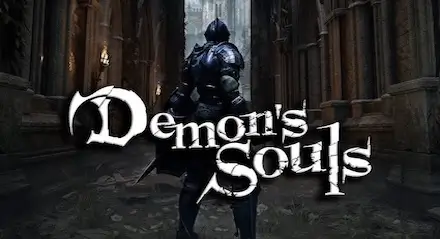 Nexus.
Nexus.
I could only keep playing as a disembodied soul with half my health, according to the manual, until I could either defeat a major demon or join another player's game to assist them in the game's uniquely limited co-op.
Determined to progress, I attempted to retrace my steps but found myself lost in unfamiliar territory, repeatedly dying at the hands of seemingly overpowered foes.
After two hours of struggle and frustration, I finally discovered a viable path to a killable demon and realized I had inadvertently followed the game's intended design. Vanguard's first win was a clear message. It showed that I was stepping into a tough area where being flexible was very important.
Lessons in Persistence and Resilience from Gaming
- This experience taught me important lessons about sticking with things and bouncing back from difficulties. It reflects the challenges we often encounter in life. The challenging gameplay of Demon's Souls drew players into its world.
- They had to come up with plans to overcome challenges. As I learned to manage difficult levels and defeat tough enemies, I gained a new appreciation for the importance of persistence.
- As I think about my experience with Demon's Souls, I see that facing challenges, both in gaming and in life, can help us grow and become stronger. The game transformed what began as a daunting experience into a rich adventure filled with valuable lessons.
The Type of Gaming Experience
Floundering through the opening hours of Demon's Souls was both exhilarating and anxiety-inducing. Without a clear path or a chance to reload at a checkpoint, I ended up lost in a challenging setting, fighting against tough enemies and my own increasing confusion.
It had been years since I felt such uncertainty in a game, leading me to believe that perhaps I had strayed from the intended path. After all, modern titles are designed to guide players every step of the way.
Embracing Uncertainty and Challenge in Gaming
However, upon confirming through online resources that this disorientation was a deliberate design choice, my perspective shifted. Demon's Souls aimed to immerse players in an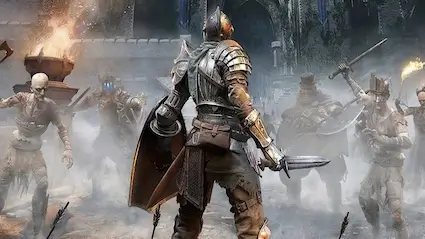 overwhelming experience, forcing me to confront vulnerability and fear. Being dropped into the action without guidance fostered realism, as I navigated dangerous environments and learned to adapt quickly.
overwhelming experience, forcing me to confront vulnerability and fear. Being dropped into the action without guidance fostered realism, as I navigated dangerous environments and learned to adapt quickly.
Feeling out of my depth became an important part of my gaming experience. Each encounter became a puzzle, with every death serving as a lesson for growth. The challenges I faced not only made victories more rewarding but also instilled resilience and problem-solving skills.
Unlike modern games that usually focus on being accessible and offering quick rewards, Demon's Souls taught me that facing uncertainty and challenges can strongly drive discovery and personal development.
There is Value Sometimes in Not Knowing What's Happening
In today’s gaming world, where quick rewards and smooth experiences prevail, it's essential to appreciate the distinctive appeal of uncertainty and discovery in the debate between retro games vs modern games. The absence of guidance and the necessity to navigate unknown terrains encourage deeper engagement with the game world.
The Value of Time-Inefficient Experiences in Gaming
Although modern games often include tutorials and tips, the thrill of figuring things out through trial and error creates a sense of accomplishment that is less common today. Overcoming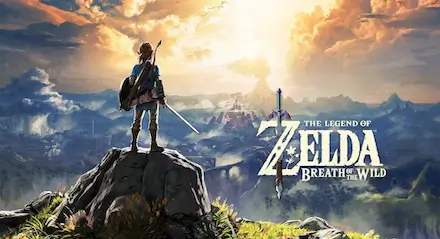 challenges without prior knowledge enhances resilience and perseverance, allowing players to form deeper emotional connections to their journeys.
challenges without prior knowledge enhances resilience and perseverance, allowing players to form deeper emotional connections to their journeys.
- Time-inefficient experiences still hold a valuable place in gaming. Games such as Dark Souls and The Legend of Zelda: Breath of the Wild illustrate this method, drawing players into expansive worlds brimming with hidden secrets and challenging enemies.
- These games require patience and the ability to adapt. They emphasize the intriguing aspects that arise from the uncertainty of what will occur next.
The Role of Design Choices in Player Engagement
The intent behind these design choices often lies in creating emotional engagement rather than merely increasing difficulty. When developers intentionally limit guidance, they challenge players to think critically and develop their own strategies. It's important to find a balance between making a game challenging and making it frustrating. This helps keep players enjoying the game.
The value of uncertainty in gaming varies among players. For people who like a challenge and want to learn, these experiences can create lasting memories and teach important lessons about patience and strength. Conversely, some players may prefer more straightforward gameplay that minimizes frustration.
Ultimately, embracing uncertainty can enrich the gaming journey, making it all the more rewarding. By creating fun experiences that offer both challenges and help, developers can build memorable adventures that invite players to discover new things.
The Retro Wrap Up:
The enduring allure of retro games lies in their ability to challenge us in ways modern games often do not. Not having save features, in-game tutorials, and clear pathways makes players feel accomplished. This is something many players really appreciate.
Games such as "Super Mario Bros 3" highlight the significance of practice, patience, skill refinement, and exploration. My recent time with "Demon's Souls" also highlights that these lessons are still important in gaming today.
As we consider the changes in gaming over the years, we must acknowledge the unique challenges that retro games present. Retro video games not only shape our skills but also foster a deeper emotional connection to the gaming experience.
I would like to hear from you now. What are your thoughts on the challenges of retro games versus modern games? Share your experiences in the comments below, and let’s discuss how these gaming journeys have impacted your life.
About Us - The Old School Game Vault
- If you're looking to sell NES games, look no further than The Old School Game Vault! Our
 platform allows you to get instant price quotes for your classic titles, making it easy and convenient to sell your retro games.
platform allows you to get instant price quotes for your classic titles, making it easy and convenient to sell your retro games.
- Simply browse our websties, enter the details of your games, and receive an instant price quote for your old video games.
Frequently Asked Questions
Why are old Nintendo games so hard?
- Old Nintendo games emphasize player skill, memorization, and trial-and-error with few tutorials or checkpoints.
- Mastery of controls and enemy patterns is required to progress.
10 hardest games of all time?
- Ghosts 'n Goblins (1985) — relentless enemies, limited lives.
- Batman: The Video Game (1989) — tight platforming, tough bosses.
- Ninja Gaiden (1988) — demanding platforming and enemy swarms.
- Mega Man 2 (1988) — pattern mastery; Quick Man’s stage is infamous.
- Zelda II: The Adventure of Link (1987) — punishing combat/leveling.
- Teenage Mutant Ninja Turtles (1989) — notorious underwater section.
- Battletoads (1991) — speeder bike level spikes difficulty.
- Metroid Fusion (2002) — challenging exploration and lethal bosses.
- Mike Tyson’s Punch-Out!! (1987) — reflex-heavy pattern reads.
- Kid Icarus (1986) — tricky vertical platforming and enemies.
Old games that still hold up today?
- Final Fantasy VI (1994), Chrono Trigger (1995), and The Legend of Zelda: A Link to the Past (1991) are timeless standouts; many classic Zelda titles are available on Switch. Tetris (1984) remains endlessly replayable.





